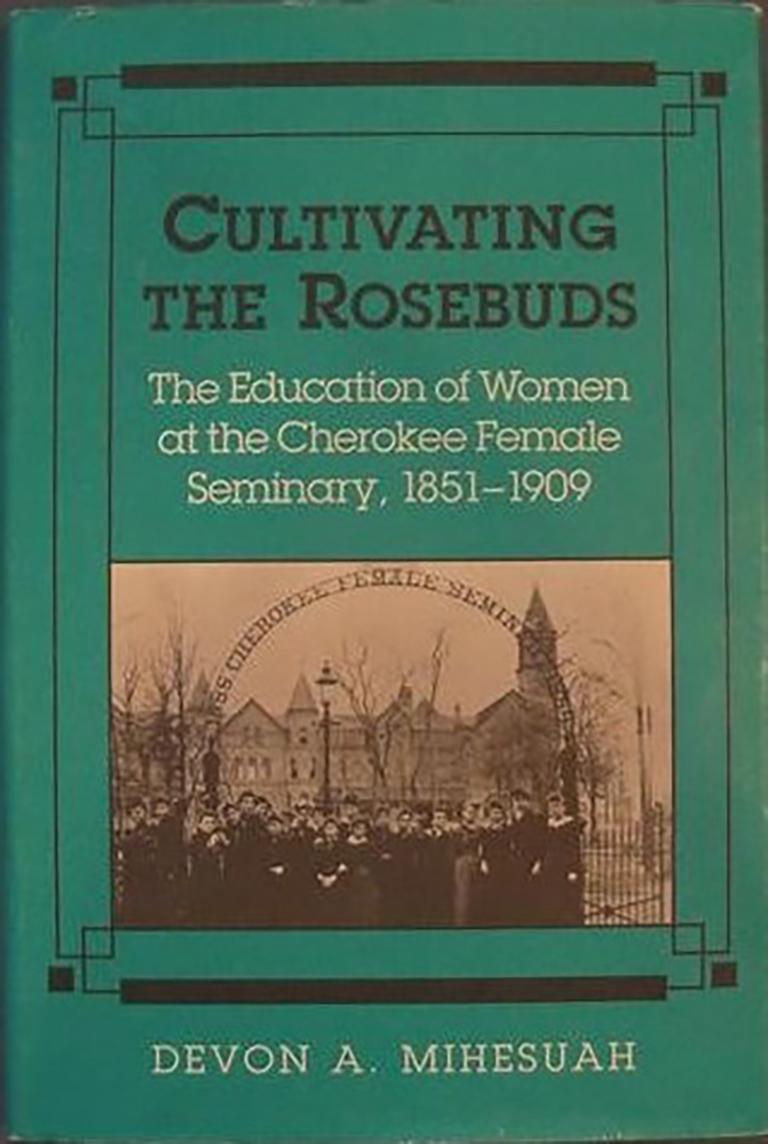Cultivating the Rosebuds
Cultivating the Rosebuds: The Education of Women at the Cherokee Female Seminary, 1851-1909
Critics’ Choice Award of the American Educational Studies Association
"I recommend it to any serious student of the Cherokee people." -Robert J. Conley, author of Mountain Windsong
"Of the many books about Cherokee history, few deal with the issue of acculturation in the post-removal period and none so effectively as Devon Mihesuah’s Cultivating the Rosebuds." -Nancy Shoemaker, Western Historical Quarterly
"[An] important work. . . . It tells the fascinating and occasionally poignant story of the Cherokee Female Seminary, which enrolled its first class of ‘Rosebuds,’ as the seminarians called themselves, in 1851." -Choice
"Required reading for anyone remotely interested in the history of Native American education." -David W. Adams, History of Education Quarterly
"In this thoroughly researched and genuinely thoughtful study, Devon Mihesuah tells the story of the Cherokee Female Seminary, a remarkable institution . . . required reading for anyone remotely interested in the history of Native American education. Particularly fascinating is Mihesuah’s analysis of how CFS reflected the deep racial, cultural, and class divisions of Cherokee society. . . [a] gem of a book." -History of Education Quarterly
"Cultivating the Rosebuds is an extraordinarily intriguing case study of the critical role played by formal education in shaping identity. Devon Mihesuah has recreated the school’s ethos in captivating fashion." -Historical Studies in Education
"Cultivating the Rosebuds is a well-researched, beautifully written, and nuanced account of the Cherokee Female Seminary which provides a microcosmic view of the Cherokee Nation’s struggle to survive the loss of their land through removal and allotment and to provide and education for the 'talented tenth.'" -Journal of Women’s History
"Mihesuah . . .has produced a fascinating case study that reveals in microcosm the intricacies of intersecting dimension of difference with one tribal group . . .I strongly recommend this work to anyone interested in the multicultural history of women’s education." -Helen Bannon, Center for Research on Women, Memphis State University
